#revisiting old characters and rehashing them into a proper setting
Photo
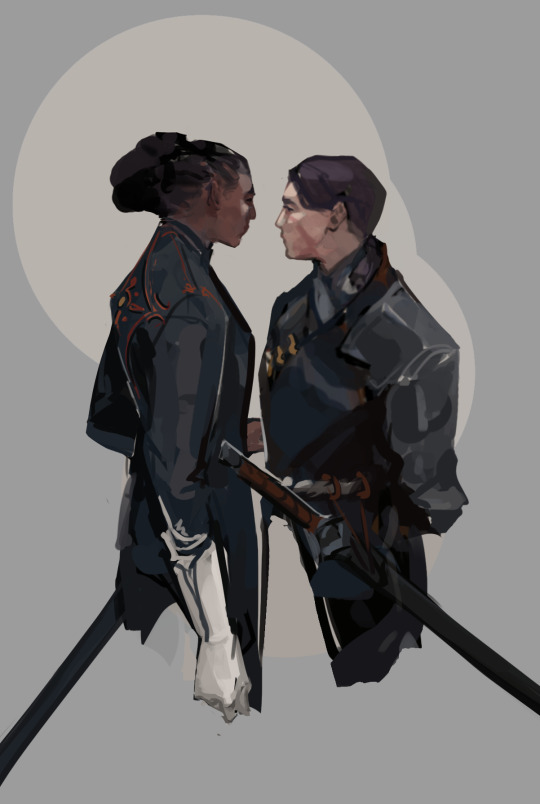
The black hound and her shrike.

#dmm posting oc shit pretending i never left#ive been drawing a lot for my self over the past year#mostly character concepts of different kinds#and i think i need to start treating posting art on tumblr dot com with less reverence#so here's some shit#revisiting old characters and rehashing them into a proper setting#jacque hahn#sloane lorenz#character design#oc#concordat
1K notes
·
View notes
Text
Tina Documentary Directors Talk About Making an Artist’s Final Statement
https://ift.tt/3f955UN
HBO’s feature documentary Tina is an intimate overview of Tina Turner, the person behind the musical icon. It is also a final statement, as the singer is moving on from the performance part of her life. The documentary tells Tina’s story the way the singer wanted it told: honestly.
Some of Turner’s musical highpoints are skipped, like her scene-stealing role as the Acid Queen in Tommy or her appearance on the bulk of Frank Zappa’s Overnight Sensation. But the story of her early rise to fame, and the oppressive influence her musical mentor, husband and onstage partner Ike Turner had on her personal and professional life is deftly explored. As is her fight for independence, recording the monumental Phil Spector production “River Deep, Mountain High,” and her 1980s global resurgence.
Tina was directed by Dan Lindsay and T.J. Martin, whose sports documentary, Undefeated, won the 2012 Oscar for or Best Documentary Feature. The duo spoke with Den of Geek about Tina Turner, the artist, person, and one of music’s most public private dancers.
Den of Geek: I really enjoyed the film. Did Tina?
Dan Lindsay: Yeah. Tina has seen the film. She saw it once we finished it. Unfortunately, because of the pandemic, we weren’t able to go and screen it for her. She saw it in a theater in Zurich and the way the timing was, we were fast asleep here in the States. She spoke with our producer Simon Chinn afterwards, and she really was happy with the film and was, I guess, for us a big compliment was she just said that we got it right. That she remembered, it was interesting for her to relive some of that stuff and that she felt like it was an accurate portrayal.
And I think the other thing is obviously you’ve seen the film. So, you know that we, as you might understand, we had some anxiety about showing her the film because we didn’t want to play any part in re-traumatizing her or triggering anything that would be difficult for her. She said that it was, ultimately, not as difficult to watch as she may have expected. So that was an encouraging sign. I think it maybe speaks a bit to the notion at the end of the film, when she talks about kind of coming to a place of acceptance.
When did you find out that the documentary was going to be a final statement from her?
T.J. Martin: That’s a good question. It’s funny. Even in the process of making it, she talked a lot about the question that’s posed in the film, this notion of: how do you bow out slowly? And we started recognizing, she’s retired from the stage, but she’s really speaking to her participation in anything that has to do with the rehashing of the story of Tina Turner, right? The way we thought about it in the film is there are two characters. There’s Tina, and then there’s the narrative of Tina. A lot of it’s about trying to get her POV and explore her relationship with the character of the narrative of Tina Turner. I don’t know if it started becoming a little bit more clear that this may be one of the last times that she actually participates in something like this until we went and filmed with her, for the premiere of the musical.
It’s not featured in the film. But we did some on-the-fly interviews with her. There was a very palpable anxiety from her about wanting to go to the premiere and continue to relive this story that is very much her, but she has moved on, and she’s in a totally new different chapter of her life. I think, at least for me, that was the time where I was like, “Oh, this might be the last true closure,” I know it’s featured in the film where Erwin says, this’ll be a closure, but it was the first time I actually felt honest that she’s hanging up the narrative of Tina so that he can actually be at peace and hang out at her castle by a lake and relax and process on her own and not in the public eye.
Lindsay: It was definitely hinted at, I guess in our first interview that we did. With Martin saying, like Irwin kind of brought up like, “I think this is it, this is like a closure.” And then doing interviews with her, she was clear that she’s like, “I don’t want to do this kind of stuff anymore.”
Does that make it easier because she knew this was going to be a final statement, that she would give one last full immersion?
Lindsay: I don’t know that there was that any of us were that conscious of it to a point where it would have made things easier or not. I just think she came into this, she’d been living her life and then the decision to do the musical, I think spurred this idea of: “Okay, well, if I’m going to talk with them for the writing of that, why not. If I’m revisiting and why not do this thing.” But I don’t know that it was like, “Okay, this is it.” Like Martin said, it’s just something that slowly evolved. And only Tina can answer this. I mean, whether she’s going to issue some public statement and be like, “Leave me alone.”
I don’t know. But yeah, I think it became clear to us as the more we filmed that it was like, “Oh yeah, she doesn’t have an interest in it.” Sorry to go off on a tangent, but the thing about Tina that’s really interesting, and I think it was something we wanted to make sure we explore at least textually in the film is that Tina’s not an activist. She didn’t come forward because she had a political message, right? She had goals in her life. She had things she wanted to do. And she was born into a society that wanted her to do certain other things. And she said, “No, I want to do this.”, and she was going to take the steps necessary to do the things she wants to do. Now that she is retired from the stage, she wants to do the things she’s doing and not be responsible for being Tina Turner anymore.
Were you fans of hers?
Martin: No. We grew up in the ’80s being very conscious of who she is, how can you not? I think there was always a tremendous amount of respect for Tina. They came to ask us to do the film. Part of her hesitation was, why us, why are two men the right people to voice Tina’s story or to author Tina’s story? And then also the other one was us talking to each other like, “Were you a Tina fan?” Neither of us really being like deep Tina super fans, which probably lent itself to being advantageous when we started that deep diving into the story and everything became a little bit more of a proper discovery.
Speaking of proper discoveries while you were talking to her – a lot of artists when they leave or when they say farewell, there’s a vault of unreleased material. Is there a vault of unreleased material?
Lindsay: No, I think as the easy answer, especially in her solo years. I think a lot of that stuff has been released. We did come upon a couple things that I think haven’t really made their way out to the public. The one thing that’s in the film that has never been heard before is, we use it to demonstrate the first time that she sang with Ike. And that is a recording of a song that Ike wrote, and it was recorded in 1962 or ’61 or ’62. Ultimately, it was recorded by Mickey and Sylvia. But the recording of it was on an old reel that a collector in St. Louis had. He had met Ike in the ’80s at some point. And Ike had given him these different reels. He had never had them digitized before. We brought them into a studio, got the multitracks, and well, I guess at that point it’s two tracks. And there was a ton of stuff on that. The early demos of songs that ultimately got recorded, but just the demo version of them. And it’s really interesting.
Is she on a lot of it?
Lindsay: Oh yeah. It’s all her, Ike and Tina doing demo stuff and there’s the original recording, or the original tracking of “I’m Blue” was on there. The Ikette’s song. Most of the stuff that we found that were rare things, were from the Ike and Tina days.
How do you choose which stories are the most representative of her?
Martin: As I’m sure you well know, Tina’s story is vast and this probably should be a 10-part series. And then on top of that, it embodies so many different storytelling genres, right? It’s a coming-of-age at 40 years old, that’s wholly unique, especially in pop music. It’s a rags-to-riches story. For us, it was a huge challenge to try to figure out how to synthesize that. But once we had our early meetings with Tina and we started recognizing how much of the trauma of her past still is omnipresent. It’s always bubbling under the surface. It’s always kind of there, we couldn’t really shake that.
And that is really what determined the POV and the lens of the film and everything was a ripple effect from there. So how do you create a space where it’s Tina looking back on the story of Tina and what is her relationship with that? And she happens to be an amazing performer, musician and musical icon. By sticking in that lane, that was our North star, to know what stories were necessary for the particular story in the particular lens of this film.
As you’ll notice, we don’t have the Rod Stewarts and the Mick Jaggers and the Beyonces talking about her artistry, but we are going to set you on the narrative of Tina and we’re just going to drop you into a performance. That’s the part where you get to experience her artistry. We don’t need someone reminding you of that. It was really about casting people that have somehow embodied or lived her story. And so that’s why you have all the scribes, Carl [Arrington] who wrote the 1980 People magazine article; Kurt Loder, who wrote I, Tina; Angela Bassett, who embodied Tina and that started giving shape and voice to this particular facet of Tina’s story that we wanted to explore.
Ike doesn’t seem like he ever really knew anything about what was bothering Tina. At one point he says he thinks the suicide attempts were because he was sleeping around. Did he ever, ever get it?
Lindsay: That interview was from 2000, I think. And I think that was probably the beginning of coming to some understanding. We’ve had footage, you only see it visually at the end, he’s by a keyboard. And it’s his house in Southern California. And that’s near the end of his life. I mean, I think he died a month or so after that stuff was filmed. We didn’t end up putting it in the film, but he talks about a letter of apology that he wrote to Tina, that there’s some kind of discrepancy whether or not Tina got the letter or not, but it’s mentioned in the musical as well.
Read more
Culture
Frank Zappa’s Son Ahmet Talks Legacy, Labels, and His Father’s Inventions
By Tony Sokol
Culture
Aqualung at 50: Jethro Tull’s Half Concept Album Hits Half a Century
By Tony Sokol
But he did. Yeah. He did come to a point where he did apologize to her. I think he somewhat understood. It’s hard to know, without talking to him. But as Tina says, Ike was obviously a very complicated and disturbed man and he had his own traumas of his life that led him to see things in a certain way. I don’t know, but we do know that he wrote her a letter of apology near the end of his life.
In the documentary, her son talks about a particularly brutal incident that made him hate Ike, but did he keep in touch with Ike until his death?
Martin: Craig specifically? I don’t think Craig did. Craig was her first child from Raymond Hill, the saxophonist. I think Craig, true to his word in the film, as he came of age and once he saw the reality of what that relationship was like. I think he stuck by his mom, his mom’s side pretty much, and really didn’t want Ike in his life.
Were you surprised to find the explicit racism from the record executive?
Lindsay: No, I don’t think we were surprised at all. It falls in line with the history of our country. Especially in the record industry, we were just talking with somebody earlier, one of the things that really stood out to me the first time we went to Tina’s house, we were looking at her Grammys and awards and stuff. She’s got several American music awards from 1985 and the award is for Best Black Video.
You go on Wikipedia now and look at the history of the American Music Awards. They don’t categorize that stuff. They’ve cleaned that aspect of that. But it just speaks to this inherent segregation in the record industry, I don’t think we were surprised. It’s disturbing to hear that stuff. And just to be aware of what did we lose in terms of things, artistry that could’ve been brought to the public because of these gatekeepers? That stuff is sad to think about, but I don’t know, Martin, I don’t think you were surprised.
Martin: No shock. I mean, I think we were really fortunate to have had that recording and good on the record executive Carter to have the courage, to kind of rehash that story and be honest about it. And to have that recording, to prove some of the things to pull the curtains back a little bit on some of the things, some of the anecdotes that we had heard about the systemic racism within the record industry, but by no means was, it was not a surprise.
Did Tina talk about any particular relationships she had with songwriters?
Lindsay: Well, Terry Britten is definitely one. He went on to write a lot of songs for her, we didn’t have the time in the film to really dive into that as much as maybe again, the 10 part series would, that was a very close relationship. And in fact, Terry in his interview got very moved and just talking about what Tina meant to him in his life and how that partnership really brought him to a level as a songwriter that you would have that, he’s unsure would have, whether it would have happened or not
Martin: We have to remember the first band Tina ever saw was Ike Turner and the Kings of Rhythm. And then she joined that band and that was kind of the beginning of her entire career. And she spent the first 20 years, 14 years with Ike, that was the dominant songwriting relationship. Obviously critically important to put the story of “River Deep, Mountain High,” because that was the first time she got an opportunity to work with a different composer songwriter producer. And that kind of liberated her. Outside of that, in terms of the narrative that we’re exploring, those would be the dominant, predominant collaborators that would actually have molded and inspired and influenced her spot.
Dominant, predominant. It’s interesting that those figures are Ike and Phil, though, isn’t it?
Martin: Totally.
Lindsay: Tina’s history and story is littered with encounters with horrible men.
Does she feel vindicated by how “River Deep, Mountain High” is now a classic, where at the time, people just shrugged it off?
Lindsay: She would never articulate it like that. I think she is very proud of it. She thinks of that song in particular as a really defining moment for her. When she went on her own, there were only a few songs from the Ike and Tina days that she continued to perform and “River Deep” was one of them. I guess probably should feel some sort of vindication, but even in some of the archive tapes, in her conversations with Kurt Loder specifically, when they talk about the recording of that song, Tina wasn’t looking at her career like, “Oh, did this pop off or not?” For her, it was just like, “I loved that song and I loved performing it.”
Whether it was successful or not, that wasn’t the way that she was thinking. And part of that is because of the relationship with Ike and the way that he controlled her.
Martin: To your last question, she did talk about, obviously another critical relationship with her was her relationship with Roger [Davies, Tina’s manager] and that transitioned into the solo years in collaboration with Roger. Obviously, it’s not a writing partner, but she did have to start to learn to trust this other vision of how to merge the strength of her performance and the strength of her voice into this new pop world. Roger’s not a writer, it’s not as featured in the film, but Roger spent a considerable amount of time calling together tapes and demos for her, for them to curate the future of her sound together.
Lindsay: I think you’ll appreciate this, to Martin’s point. And it’s, again, just because we didn’t have time to film, but one of the first songs that Roger brought to Tina was “Let’s Get Physical.” Tina was like, “Are you kidding me? I’m not going to, that’s so obvious. I’m not going to do that song!” Roger was working with Olivia Newton John. So, he gave it to her. It became a number one hit, and Tina’s response was that’s fine. I don’t care. I wasn’t going to do that song.
And have to sing it a thousand times on stage. Mick Jagger had said that he got his stage moves from watching Tina dance, and your documentary brings out that she wanted to be as big as Mick Jagger. Does she see herself as a rock artist or an R&B artist or just an artist?
Martin: My sense is that she considers herself a rock artist, but her association with rock is a type of energy, right? It’s not the way in which I think the industry or the public categorizes it, she defines rock in her own way. I think she defines herself as a rock artist.
cnx.cmd.push(function() { cnx({ playerId: "106e33c0-3911-473c-b599-b1426db57530", }).render("0270c398a82f44f49c23c16122516796"); });
Tina debuts Saturday, March 27, at 8:00 p.m. on HBO and will be available to stream on HBO Max.
The post Tina Documentary Directors Talk About Making an Artist’s Final Statement appeared first on Den of Geek.
from Den of Geek https://ift.tt/3lJijsE
1 note
·
View note
Text
Welcome Back

I am a card carrying geek. I was that nerd in grade school, reading comics, watching anime, and larping with his friends during recess. I’ve always loved things like books and film, mostly because my ma had a penchant for the sci-fi and we would share in her hobbies. I’ve been a fan of Doctor Who since i was a wee lil’ Smokey and had a particular fondness for Max Headroom’s shenanigans. My chosen proclivities lend themselves to alternate universes, divergent timeless, and the interdenominational doppelganger or two. What i am trying to convey, here, is that i am not stranger to the revisit of a franchise. For me, rebooting an established work or expanding a loved lore is not a transgression. I am a fan of narrative. If you can tell a unique story, it really doesn’t even have to be that good, but something creativity and compelling, i am totally on board. This isn't as difficult a feat as you'd think considering how well Hollywood can adapt international films. The Ring and The Departed are effectively remakes of their original Asian fare and those films are spectacular. Nolan’s Dark Knight trilogy is the best example of this i can give. His deconstruction of the Batman mythos was one of the best cinematic and storytelling experiences I ever had. If you can take an established narrative, an established universe, and inject your own flavor into it, i am down for that, too. The Kelvin Star Trek timeline immediately comes to mind. Again, comic book guy, specifically a Spider-Man shill.
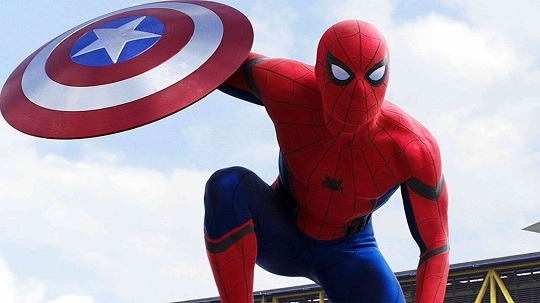
While i have years worth of alternate Spider-Men in the books to pull from, i think the most concise example i can give for a layman is to think Into the Spider-Verse, only with thousands more Spider-Men and Spider-Women. That’s the world I'm broaching this subject from, where there are decades worth of stories and reboots and remakes and reimagings, basically revisits, of a character that i absolutely love. Some are great like the Ultimate Spider-Man or the world of Renew Your Vows, and some are not so great, like that version Abrams’ kid came up with. That whole story was the worst. We have actually seen a little bit of this narrative reincarnation in the Spider-Man film franchise, itself, both good and bad. If we take the very first Spider-Man films, those campy, Raimi classics, as a starting point, then we had a terrible reboot in the Amazing franchise and a rather brilliant reimagining in the MCU outings. I really like the MCU retool. Tom Holland is THE onscreen Peter Parker and you can fight me about it all day.

Jurassic World and The Force Awakens are an interesting situation in the whole Revisit discourse. Both of these films are effectively reboots of the entire franchise and a whole ass remake of their initial entries. Beat for beat, theme for theme, these two films are basically the same as Jurassic Park and Episode IV, just less than they are in every conceivable fashion. Now, on paper, i should hate this but i don’t. There is a reason both of the imitations made billions for their respective franchise and that is simply nostalgia. We. as a culture, were starved for a Jurassic sequel and new Star War. When we got these movies in earnest, no one cared they were rehashes of the films that made them so important to the cultural zeitgeist. It was like seeing A New Hope and that initial outing to Isla Nublar for the first time, for a second time, but with much better effects. It had been decades since either of these movies had a proper release so we all just accepted that these were refresher courses in the lore. It was with the sequels that these things sh*t the bed so hard.
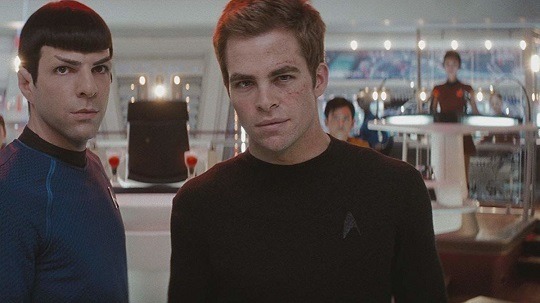
Fallen Kingdom and The Last Jedi skewed so far from what these franchises were, from the rules that had been established in the preceding films, including the first in their new trilogies, that they were offensive. Legitimately offensive. Jurassic World and The Force Awakens, as flawed as they were, left their worlds in respectable places. The narratives that could be built from those starting point were incredible. That potential was palpable. Lucas, himself, said that the stories should rhyme and you see that in his six films. Familiar yet different. Nostalgic yet original. Respectful yet original. None of that was recognized in the follow-ups and that is why these two franchises are on life support. It’s sad because there was potential there. Characters introduced were compelling and narrative threads left unties, could have become something great. Instead, expectations were subverted and the world completely sh*t on in an effort to be edgy, to distance itself from the established lore. That sh*t is whack. It’s not about being a fan of the franchise or a zealous istaphobe or whatever else the Twatter mob wants to accuse people of being. It’s about bad story telling. it’s abut a complete betrayal of a decades old franchise. It’s a bout being disingenuous with the property for personal gain.

I said at the beginning of this essay that i love a revisit. That’s why i went to see these sh*tty films. I also made very clear that i love storytelling. Fallen Kingdom and The Last Jedi lack in that fundamental aspect, that’s why they suck. They’ve done irreparable damage to the entire franchise and canon of these worlds that were so meticulously crafted by proper visionaries. Michael Crichton is rolling in his grave at what became of his Dinosaur Westworld and Lucas effectively bogarded his way into running Lucasfilm again after they sh*t on his legacy and that’s the thing; Legacy. These two franchises are part of American culture. They’re as revered as Apple Pie and Institutional Racism here. They’re not cash grabs or vehicles to push your politics. They’re modern fairy tales, myths, and should be respected as such. The thing is, though, i don’t believe there are actual creatives out there that have the vision to create like Crichton or Lucas anymore. Or, at least, Creatives that are willing to work within the constraints of this ridiculous studio system.
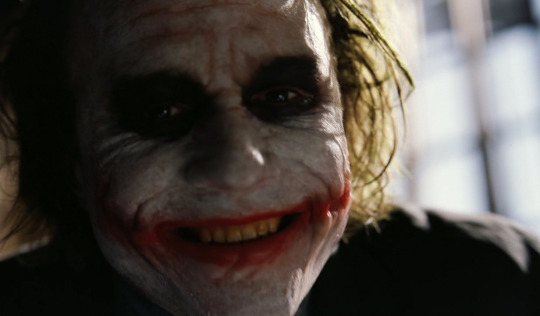
Modern film studios are disgustingly risk averse. That is a problem with anything making entertainment media nowadays but it’s most egregious in Hollywood. Films like Star Wars and Alien were made in a time when budgets didn’t swell to hundreds of millions of dollars so directors had to do what he could, with what they had, and that level of imagination birthed classics. It’s rare that creators get a blank check to deliver their vision nowadays, and even rarer that what they get to make if they receive that loot, is actually good. Zack Snyder and the train wreck that is Sucker Punch demonstrates my point perfectly. the new Lucases and Camerons are rare but there are a handful of directors who carry that torch. Denis Villeneuve is an incredible visual storyteller. He has a distinct vision for the grand and manages to craft proper worlds. Blade Runner 2049 is one of the best films i have ever seen in my life but it didn’t make money because people have been conditioned to ignore great storytelling for great effects. That sh*t is why people can say to me, with a straight face, that they think Batman v. Superman is better than The Dark Knight rises. That sh*t is stupid, shut the f*ck up. Deni was given the reigns to the Dune reboot and i think this might be the film that breaks him through to the mainstream.
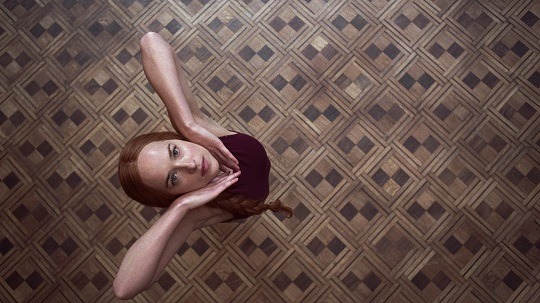
Dune is a reboot. It looks like a revisit to the old David Lynch flick but with Deni’s penchant for the epic. This movie feels like what Jurassic World and The Force Awakens wanted to do; A respectful acknowledgment of what came before but an original take going forward. Dune is one of the greatest sci-fi novels ever written and Deni is one of the most profound visionaries in the game right now. I have no doubt the new film is going to be fantastic. This combination is a match made in heaven, similar to Alex Garland with Annihilation or, more accurately i think, Luca Guadagnino and Suspiria. Those two films are f*cking incredible and they adapt the source material in a very, specific, manner. Annihilation is a reimagining of the book and carries its own themes and tones while the new Suspiria is a complete reinterpretation of what came before, that i believe eclipses the original. Dune looks excellent but i don’t know that it will be well received. Deni has his work cut out for him because the world of revisits is riddle with the corpses of films that couldn’t care the weight of what came before or what could have been. Still, i don’t want Hollywood to stop. As unoriginal as remaking things is, i adore a fresh set of eyes on familiar fare. There are infinite ways to tell the same story and that’s the fun of revisiting an old tale.

2 notes
·
View notes
Text
Welcome Back
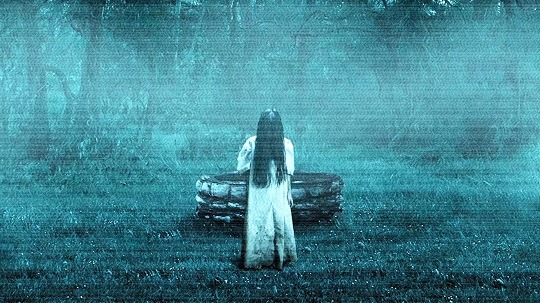
I am a card carrying geek. I was that nerd in grade school, reading comics, watching anime, and larping with his friends during recess. I’ve always loved things like books and film, mostly because my ma had a penchant for the sci-fi and we would share in her hobbies. I’ve been a fan of Doctor Who since i was a wee lil’ Smokey and had a particular fondness for Max Headroom’s shenanigans. My chosen proclivities lend themselves to alternate universes, divergent timeless, and the interdenominational doppelganger or two. What i am trying to convey, here, is that i am not stranger to the revisit of a franchise. For me, rebooting an established work or expanding a loved lore is not a transgression. I am a fan of narrative. If you can tell a unique story, it really doesn’t even have to be that good, but something creativity and compelling, i am totally on board. This isn't as difficult a feat as you'd think considering how well Hollywood can adapt international films. The Ring and The Departed are effectively remakes of their original Asian fare and those films are spectacular. Nolan’s Dark Knight trilogy is the best example of this i can give. His deconstruction of the Batman mythos was one of the best cinematic and storytelling experiences I ever had. If you can take an established narrative, an established universe, and inject your own flavor into it, i am down for that, too. The Kelvin Star Trek timeline immediately comes to mind. Again, comic book guy, specifically a Spider-Man shill.

While i have years worth of alternate Spider-Men in the books to pull from, i think the most concise example i can give for a layman is to think Into the Spider-Verse, only with thousands more Spider-Men and Spider-Women. That’s the world I'm broaching this subject from, where there are decades worth of stories and reboots and remakes and reimagings, basically revisits, of a character that i absolutely love. Some are great like the Ultimate Spider-Man or the world of Renew Your Vows, and some are not so great, like that version Abrams’ kid came up with. That whole story was the worst. We have actually seen a little bit of this narrative reincarnation in the Spider-Man film franchise, itself, both good and bad. If we take the very first Spider-Man films, those campy, Raimi classics, as a starting point, then we had a terrible reboot in the Amazing franchise and a rather brilliant reimagining in the MCU outings. I really like the MCU retool. Tom Holland is THE onscreen Peter Parker and you can fight me about it all day.
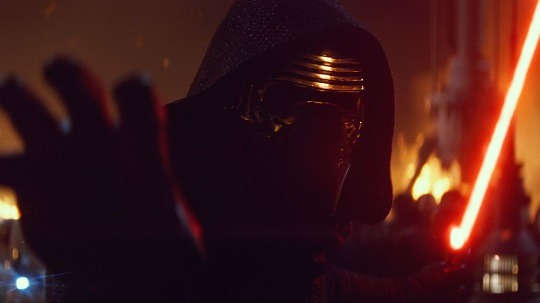
Jurassic World and The Force Awakens are an interesting situation in the whole Revisit discourse. Both of these films are effectively reboots of the entire franchise and a whole ass remake of their initial entries. Beat for beat, theme for theme, these two films are basically the same as Jurassic Park and Episode IV, just less than they are in every conceivable fashion. Now, on paper, i should hate this but i don’t. There is a reason both of the imitations made billions for their respective franchise and that is simply nostalgia. We. as a culture, were starved for a Jurassic sequel and new Star War. When we got these movies in earnest, no one cared they were rehashes of the films that made them so important to the cultural zeitgeist. It was like seeing A New Hope and that initial outing to Isla Nublar for the first time, for a second time, but with much better effects. It had been decades since either of these movies had a proper release so we all just accepted that these were refresher courses in the lore. It was with the sequels that these things sh*t the bed so hard.

Fallen Kingdom and The Last Jedi skewed so far from what these franchises were, from the rules that had been established in the preceding films, including the first in their new trilogies, that they were offensive. Legitimately offensive. Jurassic World and The Force Awakens, as flawed as they were, left their worlds in respectable places. The narratives that could be built from those starting point were incredible. That potential was palpable. Lucas, himself, said that the stories should rhyme and you see that in his six films. Familiar yet different. Nostalgic yet original. Respectful yet original. None of that was recognized in the follow-ups and that is why these two franchises are on life support. It’s sad because there was potential there. Characters introduced were compelling and narrative threads left unties, could have become something great. Instead, expectations were subverted and the world completely sh*t on in an effort to be edgy, to distance itself from the established lore. That sh*t is whack. It’s not about being a fan of the franchise or a zealous istaphobe or whatever else the Twatter mob wants to accuse people of being. It’s about bad story telling. it’s abut a complete betrayal of a decades old franchise. It’s a bout being disingenuous with the property for personal gain.
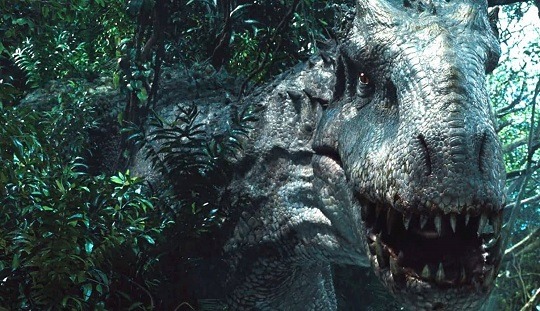
I said at the beginning of this essay that i love a revisit. That’s why i went to see these sh*tty films. I also made very clear that i love storytelling. Fallen Kingdom and The Last Jedi lack in that fundamental aspect, that’s why they suck. They’ve done irreparable damage to the entire franchise and canon of these worlds that were so meticulously crafted by proper visionaries. Michael Crichton is rolling in his grave at what became of his Dinosaur Westworld and Lucas effectively bogarded his way into running Lucasfilm again after they sh*t on his legacy and that’s the thing; Legacy. These two franchises are part of American culture. They’re as revered as Apple Pie and Institutional Racism here. They’re not cash grabs or vehicles to push your politics. They’re modern fairy tales, myths, and should be respected as such. The thing is, though, i don’t believe there are actual creatives out there that have the vision to create like Crichton or Lucas anymore. Or, at least, Creatives that are willing to work within the constraints of this ridiculous studio system.
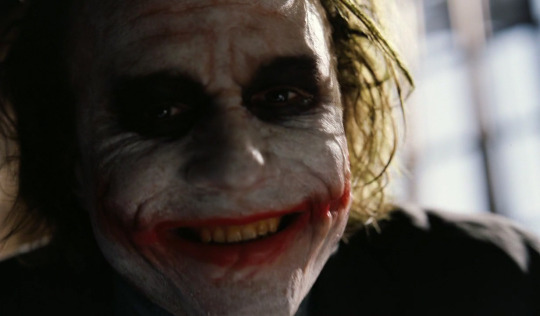
Modern film studios are disgustingly risk averse. That is a problem with anything making entertainment media nowadays but it’s most egregious in Hollywood. Films like Star Wars and Alien were made in a time when budgets didn’t swell to hundreds of millions of dollars so directors had to do what he could, with what they had, and that level of imagination birthed classics. It’s rare that creators get a blank check to deliver their vision nowadays, and even rarer that what they get to make if they receive that loot, is actually good. Zack Snyder and the train wreck that is Sucker Punch demonstrates my point perfectly. the new Lucases and Camerons are rare but there are a handful of directors who carry that torch. Denis Villeneuve is an incredible visual storyteller. He has a distinct vision for the grand and manages to craft proper worlds. Blade Runner 2049 is one of the best films i have ever seen in my life but it didn’t make money because people have been conditioned to ignore great storytelling for great effects. That sh*t is why people can say to me, with a straight face, that they think Batman v. Superman is better than The Dark Knight rises. That sh*t is stupid, shut the f*ck up. Deni was given the reigns to the Dune reboot and i think this might be the film that breaks him through to the mainstream.

Dune is a reboot. It looks like a revisit to the old David Lynch flick but with Deni’s penchant for the epic. This movie feels like what Jurassic World and The Force Awakens wanted to do; A respectful acknowledgment of what came before but an original take going forward. Dune is one of the greatest sci-fi novels ever written and Deni is one of the most profound visionaries in the game right now. I have no doubt the new film is going to be fantastic. This combination is a match made in heaven, similar to Alex Garland with Annihilation or, more accurately i think, Luca Guadagnino and Suspiria. Those two films are f*cking incredible and they adapt the source material in a very, specific, manner. Annihilation is a reimagining of the book and carries its own themes and tones while the new Suspiria is a complete reinterpretation of what came before, that i believe eclipses the original. Dune looks excellent but i don’t know that it will be well received. Deni has his work cut out for him because the world of revisits is riddle with the corpses of films that couldn’t care the weight of what came before or what could have been. Still, i don’t want Hollywood to stop. As unoriginal as remaking things is, i adore a fresh set of eyes on familiar fare. There are infinite ways to tell the same story and that’s the fun of revisiting an old tale.

0 notes
Text
REVIEW: THE HIGH GROUND BY MELINDA SNODGRASS
The High Ground by Melinda Snodgrass (Titan Books, 2016)
When I was a child I loved the breakfast cereal Ready Brek – instant porridge whose television advertisements used to feature a young boy protected from the winter elements by a warm glow of healthy goodness. I would eat Ready Brek for breakfast, supper and, basically, whenever I could persuade someone to give me a bowl. If I’d had my way I might have eaten nothing but Ready Brek. Recently, in a moment of nostalgic weakness, I thought I’d revisit my childhood obsession and made myself a bowl. I’m not sure what my seven-year-old-self saw in the stuff, but I can tell you that I was left wondering why anyone would eat this flavourless, textureless, pap.
The back cover of this volume introduces Snodgrass as an acclaimed novelist and noted scriptwriter on Star Trek: The Next Generation. This is the first time I’ve come across her work but she has written with George RR Martin in the Wild Cards series and her novel Circuit (published in 1986 – the first of a trilogy) was nominated for a Prometheus Award.
The High Ground is the first (of five) in a new series (The Imperials Saga) in which humanity has largely abandoned the environmentally ravaged, over-heated Earth. Beyond our own solar system we have encountered and conquered a variety of alien species to establish a “Solar Empire” which has existed for long enough that it has begun to slip into decadence, if not yet decline. The emperor of this confection has a problem – a family full of daughters but a genetic inability to produce a male heir that (perhaps improbably) this society’s advanced sciences seem incapable of curing. The emperor’s solution is to break with tradition and appoint Mercedes, his eldest daughter as his heir. But, to claim the throne, Mercedes must prove her fitness to lead by becoming the first young woman to attend and graduate from the empire’s elite military college, the titular High Ground, set in a vast station orbiting the imperial throneworld, Ouranos.
Meanwhile, Thracius (Tracy) is the bright son of an impoverished tailor who has – much to his dismay – been awarded a scholarship to The High Ground. Tracy’s position as an intitulado – a student from outside the aristocracy – is not unique but his low-born status attracts scorn and maltreatment.
Despite being sold as a “space opera” almost all of this novel (barring a brief prologue and a final action sequence) is a tepid school-based romance that weakly rehashes material that will be familiar from a host of more dynamic and more engagingly and elegantly written young-adult novels. There might have been some mileage in a story that sought to talk about expectations of gender and class in a rigidly structured society, but this is not this book. The “politics” of The Imperials Saga go no deeper than the average Hollywood high school teen romance and the plot unfolds with exactly the same sense of cloying inevitability. Mercedes and Tracy are, of course, bound to fall in love – though their difference in station means their love “must never be”. And, of course, both have misadventures due to their atypical status – forced to fight the prejudice and ignorance of others and the expectations of their society.
The major problem with The High Ground is that for around 350 pages nothing interesting happens and it doesn’t happen in very familiar ways. It’s very hard to care for a pair of protagonists who, despite the supposed obstacles placed in their paths, are so obviously and unquestionably destined to succeed. Mercedes may worry about whether she’s pretty enough or capable enough, but it is immediately clear that, of course, she’s really beautiful and, of course, her practical competence will be rewarded. Tracy might suffer from regularly-spaced bouts of insecurity but he’s also obviously destined for greatness and bound to outshine all of his higher-born classmates. That’s just the kind of novel this is.
Beyond the two lead characters, the book is full of insipid and wafer-thin cut outs. None of these people seem to have a life that extends beyond their relationships with the leads and none of them are destined serve any purpose beyond helping Mercedes and Tracy learn important lessons about themselves. This solar empire may extend to distant stars, but it has no depth
As for the plot – what there is of it – there’s not a single line or paragraph or page in the book that makes the reader doubt that it is going to deviate from a well-worn and regularly signposted path. Fifty or so pages from the end of the book a half-baked plot against Mercedes is revealed and there is some brief action but it’s unaffecting and what little tension is generated is quickly dissipated. The schemers of the imperial court are, frankly, blithering idiots and their plots have all unnecessarily silly complexity of a hackneyed comic book villain. Perhaps, as The Imperials Saga develops and extends itself into the wider universe Snodgrass has created, the story will gather pace and become more engaging, but the signs are not good – the aliens seem neither more interesting nor better defined than their human counterparts.
Snodgrass’s writing is polished to a glassy smoothness throughout, there’s no doubting her professionalism. The downside of this, however, is that so many rough edges have been removed that every feature that might snag the reader’s attention has been worn away. The text is it is easy to consume, certainly, but it also lacks anything to chew on, any real flavour or anything that would make you want to go back and consume some more: just like Ready Brek.
A shorter version of this review was originally published in The BSFA Review #2, January 2018.
P.S. If you are a fan of football (the proper, non-American kind), then one of the genuine “highlights” of The High Ground is a description of a game of “soccer” that is mind-blowingly wrong. Snodgrass’s description of the game is written as though not only has she never seen a game of soccer, but the person who described soccer to her had not only never seen a game either but had only read about it in a book that was written in a language that they only partly understood. It’s ludicrous… Anyway, there are no blockers in proper football.
REVIEW: THE HIGH GROUND BY MELINDA SNODGRASS was originally published on Welcome To My World
1 note
·
View note